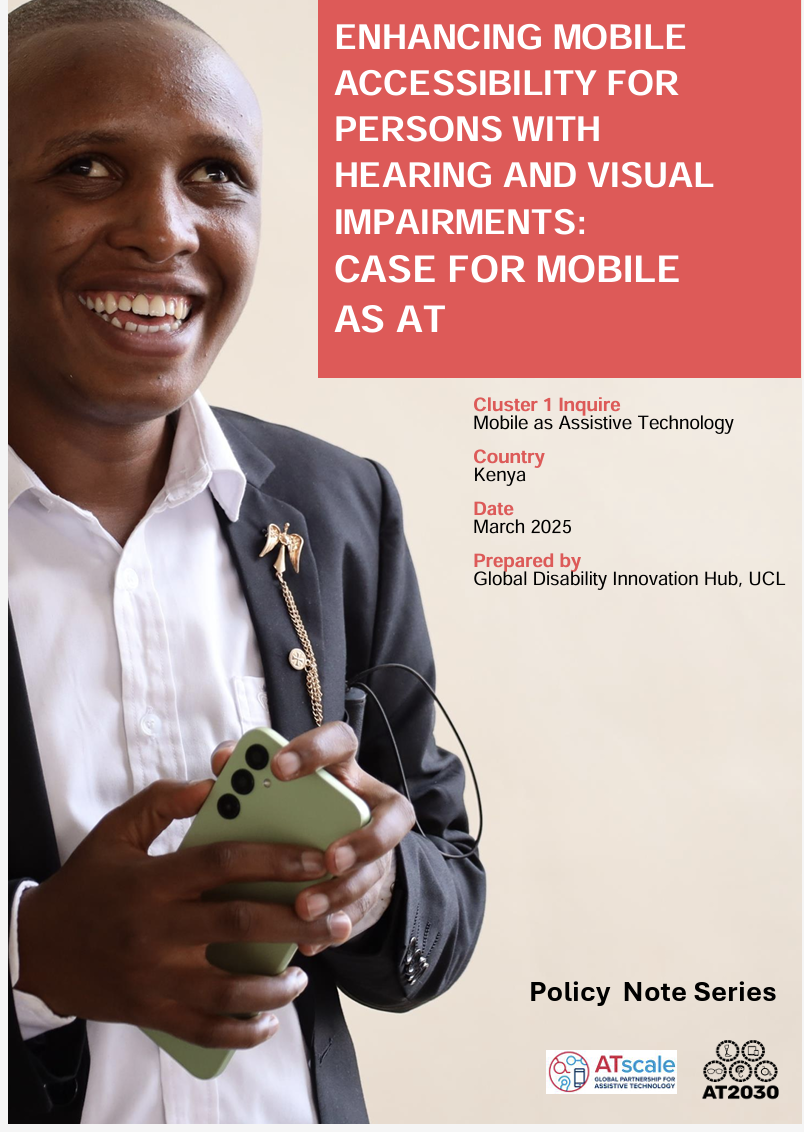Leveraging the power of digital AT
The rapid growth in use of smartphones and other digital technology offers a huge opportunity to dramatically improve accessibility and inclusion. At present the potential is under-exploited due to factors such as an absence of supportive policy environments within countries, as well as diverse and fragmented standards used by product developers and a failure to adapt products and services to local languages and needs.
ATscale is developing a portfolio of activities that will secure greater benefits for AT users from digital technology with an initial focus on smartphones and an ambition to widen scope to a greater number of products. The approach will include efforts to agree common standards for developers to enhance usability and allow for easier assurance of quality. ATscale will also explore ways to make quality information on app performance and use-case much more easily available to users.
Completed interventions
Domain: Digital
Timeframe: 2023-2025
Implementing Partners: Global Disability Innovation Hub (GDI Hub) and Google
Study on the impact of smartphones on persons with visual and hearing impairments
A research study, launched in 2023, is assessing the feasibility and impact of providing mobile phones to individuals with hearing and vision impairments. The study aims to generate data on mobile-based assistive technology usage and qualitative feedback to inform future accessibility design, programmes, and policies that facilitate access to mobile technology as assistive technology.
The study is jointly funded by GDI Hub, Google, and ATscale, with GDI Hub managing research activities in the three countries: India, Kenya and Brazil.
Watch the explainer video to find out more about the study and early results
Read more on ATscale news
Assistive technology in your pocket: the transformative potential of smartphones
Domain: Digital AT
Timeframe: 2022
Implementing partner: Non-routine LLP and UNICEF
Development of text-to-speech (TTS) for four under-represented languages (Turkmen, Nepali, South Vietnamese and Setswana)
ATscale identified the need for text-to-speech (TTS), voices for under-represented languages as one of the areas where it could make a catalytic investment to improve access. Under-represented languages are those which tend to have reduced support from private information technology companies due to the perception that they are predominantly spoken in countries for which these TTS investments are not considered commercially attractive. ATscale supported UNICEF to expand access to information and communication in Turkmen, Nepali, South Vietnamese and Setswana, spoken in Botswana and South Africa.
Read more on ATscale news
